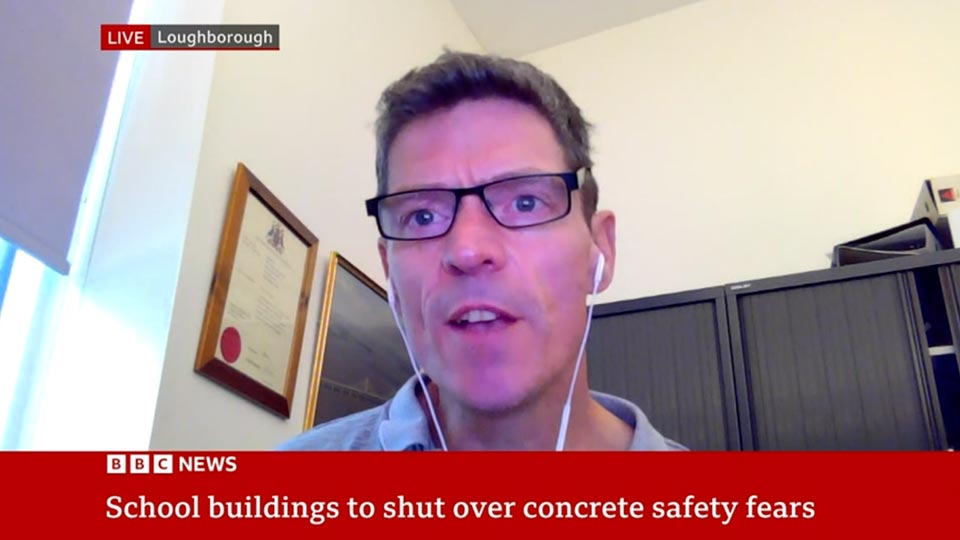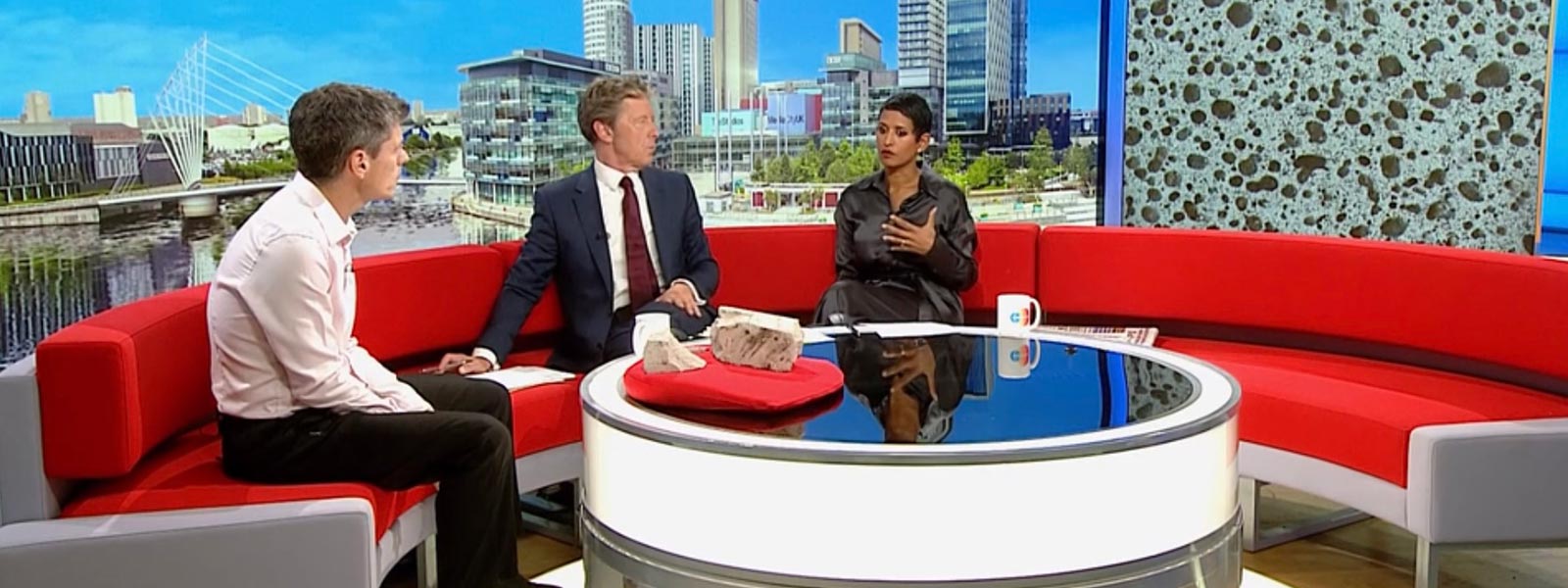With some RAAC now showing signs of failure and the Department for Education (DfE) decision to close a number of schools because of concerns over the building material, journalists were scrambling for expert insight.
Academics from the School of Architecture, Building and Civil Engineering have been researching RAAC for several years, undertaking NHS-funded projects in hospitals and advising the DfE and other top-level Government bodies on the risks associated with the material and how best to manage them. Their work has been instrumental in identifying the main issues with RAAC and developing recommendations on how to tackle the growing problem.
Capitalising on the intense media interest in RAAC, the team – made up of Professors Chris Goodier, Sergio Cavalero and Chris Gorse, and Drs Karen Blay and Ana Blanco – stepped forward to share their expert knowledge.
How did they get their voices heard?
Several weeks before the DfE decision was announced the research team recognised that RAAC was an issue of national concern, and that they were the experts who should lead the debate.

They worked with the University’s Public Relations Team to create a RAAC explainer, establishing their significant knowledge in this area and setting out their willingness to work with the media to tell the RAAC story.
When the DfE story broke and journalists were searching for experts, the explainer signposted them to the team. And as the many media requests came in the academics stepped up to respond, dedicating several days and weeks to interviews and filming requests.
To date their expertise has appeared in more than 900 newspaper, radio and TV items, including BBC Breakfast, BBC Newsnight, The Independent, The Telegraph and The Guardian. The research has been referenced in the media in 17 countries, including the US, India and Sweden, as well as being quoted in the House of Commons.
Ingredients to media success
The key ingredients to media success with the RAAC coverage were:
- A national breaking news story aligned to our research.
- The research pedigree to lead the debate.
- Existing content on the University’s Media Centre/website shining a light on and signposting media to existing research expertise.
- A group of academics committed to capitalising on media interest in their work and with the skills and attributes for sharing their knowledge in an accessible way.
- A supportive school senior leadership team that gave the academics space to respond to the media and recognised their efforts.
What did the media coverage achieve?
There have been several positive outcomes from the RAAC media engagement, including:
- Highlighting the world-leading research being undertaken by the team, helping to raise the profile of the University on a global stage.
- Raising the individual profile of the academics involved, firmly establishing them as research leaders in this field.
- Creating new partnerships with numerous government departments, construction bodies, and businesses. These include:
- The Cabinet Office
- The Scottish Parliament
- The Welsh Parliament
- The APPG (All Party Parliamentary Group)
- The NHS
- The DfE (include their Chief Scientific Officer, Property Director, AI/data experts and RAAC lead)
- The Government Chief Scientific Advisor, Professor Dame Angela McLean
- The MOD
- The Building Safety Regulator
- The Construction Leadership Council
- Several professional bodies, including the Royal Institute of Chartered Surveyors, the Chartered Institute of Building and the Institution of Structural Engineers
Speaking about the experience, Professor Chris Goodier said: “This has been a once in a lifetime opportunity for myself and the team to get our research and Loughborough’s name discussed at the highest levels of national government and in the global press. It’s been exhausting, but the additional profile that it’s brought to Loughborough is undeniable and will benefit us all.”
This is a great example of our world-leading research being at the centre of significant societal discussions and how this positioning can raise the profile of the University’s national and global reputation, as outlined in our strategy. We were able to deliver such outstanding results because the team engaged with the media, and our PR team, and explained their research in an accessible way.

PR Team
The Public Relations Team is on hand to provide support and advice for all aspects of media engagement. To find out more email publicrelations@lboro.ac.uk.